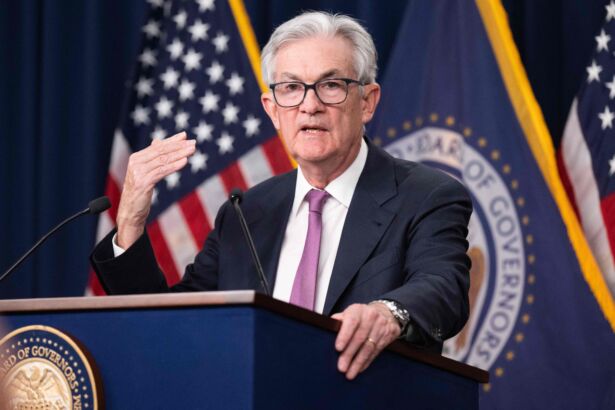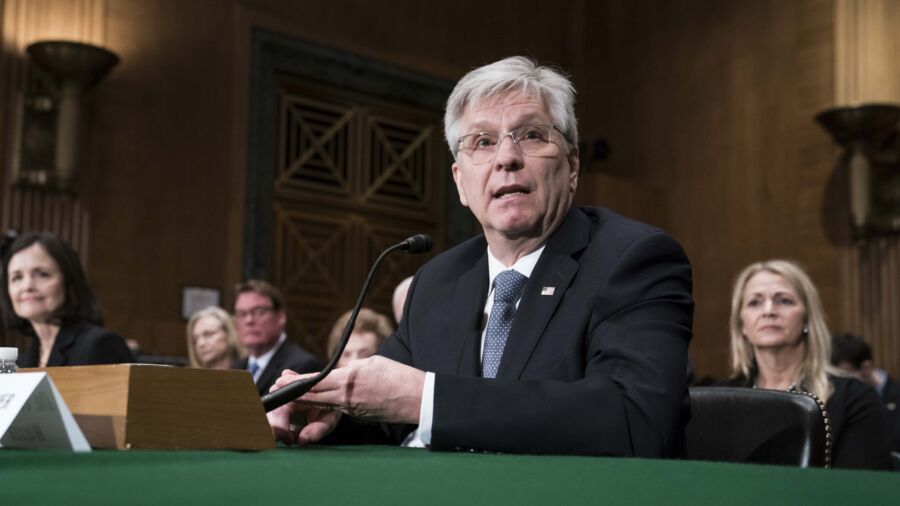Federal Reserve Gov. Christopher Waller said that climate change does not present a “sufficiently unique” risk to the U.S. financial system.
Regarding climate change, or the theory that the Earth’s temperatures are warming due to human activity, “I do not believe it poses a serious risk to the safety and soundness of large banks or the financial stability of the United States,” Waller said in a conference in Spain on Thursday.
“Risks are risks … my job is to make sure that the financial system is resilient to a range of risks. And I believe risks posed by climate change are not sufficiently unique or material to merit special treatment,” Waller added, according to multiple news outlets.
The aim of Fed oversight and stress tests of bank balance sheets, he added, was “general resiliency, recognizing that we can’t predict, prioritize, and tailor specific policy around each and every shock that could occur.”
“In March we watched a bank run on Silicon Valley Bank” that heightened attention to the levels of uninsured deposits at some institutions, Waller remarked. “Those are the kinds of things I am staring at right now. I am not as worried about climate as I am about things like banks failing because of bank runs.”
He was making reference to the collapse of the bank, known as SVB, after depositors withdrew their funds en masse amid concerns about the institution’s health. Several other regional banks have also collapsed since then.
To address U.S. financial stability, central bankers have to look into whether any change to the climate would have a “near-term” impact that would cause large enough losses to the macroeconomy, Waller said. He noted that banks are already adept at hedging against weather-related losses, while more slow-moving weather patterns were locally—but not systematically—important.
“So where does that leave us? I don’t see a need for special treatment for climate-related risks in our financial stability monitoring and policies. As policymakers, we must balance the broad set of risks we face, and we have a responsibility to prioritize using evidence and analysis,” he concluded. “Based on what I’ve seen so far, I believe that placing an outsized focus on climate-related risks is not needed, and the Federal Reserve should focus on more near-term and material risks in keeping with our mandate.”

His comments were consistent with those made by Fed Chairman Jerome Powell in recent months, who said the U.S. central bank is not going to be a climate policymaker. He has also suggested the bank will not steer investment or capital away from petroleum or natural gas companies.
Earlier this year, Powell suggested that Congress should deal with any climate-related policies, not the Federal Reserve.
“Addressing climate change seems likely to require policies that would have significant distributional and other effects on companies, industries, regions, and nations,” Powell said in January, reiterating comments he’s made in the past about the controversial theory. “Decisions about policies to directly address climate change should be made by the elected branches of government.”
Policy Agenda
There have been concerns that climate-related policies brought about at the local, state, and federal level will place undue economic burdens on ordinary consumers, for example, by mandating that they use electric vehicles and appliances instead of gas-powered vehicles and appliances.
At the same time, some scientists have expressed concern that so-called renewable sources of energy such as wind power may not be sufficient to meet power grid demands. Also, in New York and California, both states have imposed measures that would phase out the sale of all new gas-powered vehicles and replace them with electric ones by 2035.
This week, the federal Environmental Protection Agency proposed a rule that would require most fossil fuel power plants to cut their emissions by 90 percent between 2035 and 2040 or be shut down. The rule, if approved, will likely be challenged by Republican-led states and the U.S. Supreme Court.
“There’s a potential catastrophe coming because Biden’s administration is retiring current sources of energy much, much faster than you can get the new sources—the renewable energy they want—online,” said Sen. John Barrasso (R-Wyo.), the top Republican on the Energy and Natural Resources Committee, told Politico this week.
In mid-2022, about 1,000 scientists and professionals issued a letter decrying the widespread alarmism over the climate, saying there is no climate-related emergency amid decades worth of predictions claiming civilization will end as we know it due to the warming of the Earth’s atmosphere. Those scientists suggested that such claims are exaggerated and used by bad actors to acquire more political power and influence.
“Climate science should be less political, while climate policies should be more scientific,” a summary reads. “Scientists should openly address uncertainties and exaggerations in their predictions of global warming.”
Meanwhile, “politicians should dispassionately count the real costs as well as the imagined benefits of their policy measures,” the declaration said.
Reuters contributed to this report.
From The Epoch Times

